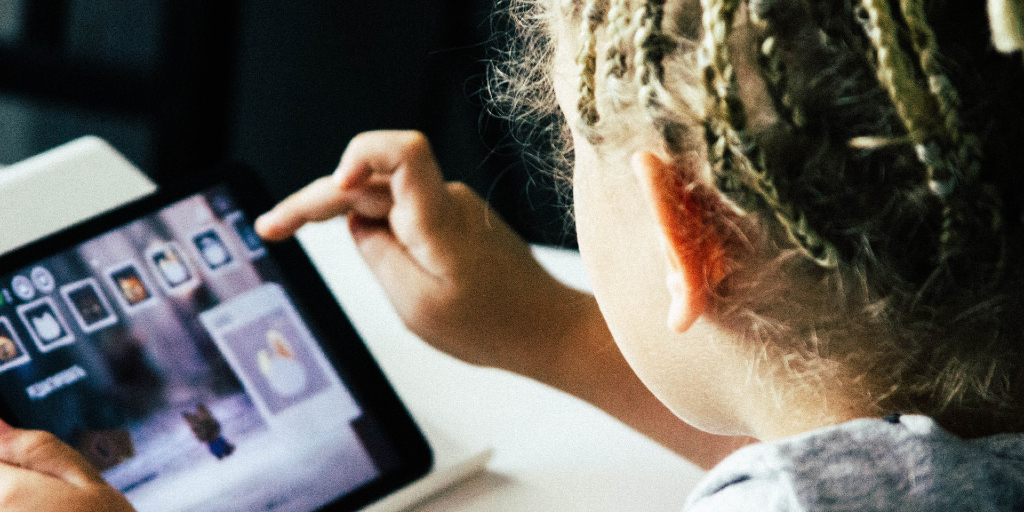 Throughout history, children have prioritised play, learning, family and friends. They begin life believing that the world is fair, and they value their agency and belonging above all else. This will surely continue. Also of continued importance are the ways in which children’s well-being depends on their family’s health, wealth and social status, on their community resources, employment prospects and on state provision for education and welfare, among other factors. However, as governments, businesses, civil society and other actors, including families, increasingly rely on the digital environment as the basic infrastructure of their activities, children’s well-being is inevitably affected in ways that we are only just beginning to understand.
Throughout history, children have prioritised play, learning, family and friends. They begin life believing that the world is fair, and they value their agency and belonging above all else. This will surely continue. Also of continued importance are the ways in which children’s well-being depends on their family’s health, wealth and social status, on their community resources, employment prospects and on state provision for education and welfare, among other factors. However, as governments, businesses, civil society and other actors, including families, increasingly rely on the digital environment as the basic infrastructure of their activities, children’s well-being is inevitably affected in ways that we are only just beginning to understand.
Many of the consequences of our digital age are exciting for children, and children themselves very often embrace digital technologies and even believe it is their right to have access to them. This report shows that children in Brazil, Chile, Costa Rica and Uruguay, as elsewhere, are gaining valuable digital skills and enjoying new opportunities to participate in socialising, education and entertainment online. As we have learned from the Kids Online research, some of the activities that adults consider “just entertainment” can act usefully as a gateway to more creative or civic activities, because they help children gain digital confidence and skills. But still most children do not do the creative or civic activities online, so policy interventions are needed for children to exercise their rights in a digital world.
In particular, it is vital for governments to support the everyday processes of technology adoption so that technology becomes meaningful and valuable in children’s lives. The state support required to optimise children’s digital opportunities includes teacher training, curriculum revisions focused on digital literacy, parental awareness-raising, and policies to help disadvantaged families gain internet access. Without such interventions, it is very likely that existing (and long-familiar) forms of socio-economic inequality will have consequences in the digital environment, and that digital inequalities will exacerbate the inequalities in children’s physical lives. Also important are policies and practices which encourage children to express themselves online in diverse ways, since many children in the four countries do not do this. For example, the government could promote online participation tools, give awards to digital services which engage children’s creativity, train peer mentors, appoint digital youth champions, and ensure that state-supported online deliberation spaces are welcoming to children.
While the promise of digital opportunities is still exciting, there is plenty to worry about in terms of the content, contact, conduct and commercial risks to children’s safety and well-being. The report also shows why it is important to ask children directly about their experiences – adults worry a lot about sexual risks online but interestingly in these countries, children themselves report more likelihood of encountering violence content online, and this too can be problematic. The levels of online risk reported in Brazil, Chile, Costa Rica and Uruguay are not among the highest, although the gender differences are concerning (with more girls than boys seeing violence, hate or suicide content, in all the cases of study).
However, Chilean children are more likely than in many other countries, according to Global Kids Online research, to say that something online upset them in the past year. Since the comparative research also suggests that Chilean parents are already among the most responsible in trying to manage and guide their children’s online experiences, it might be appropriate to suggest that the degree of harm revealed by the research merits a greater regulation of digital services and providers. Such regulation would need to be carefully framed, however, since restrictions on children’s online activities, however well-meaning, can restrict their opportunities to climb the ladder of online participation, reducing the benefits to children in the digital age.
Today we are moving from a world of living with screen media, often chosen by children and more or less under their and their parents’ control, to a world of embedded media, of smart cities and smart homes. Policy and practice so far has focused on how to guide children and parents to make wise choices – media literacy, and parental mediation, respectively. But as the digital technologies become less visible, more environmental, we will need a new approach. Media literacy and parental mediation will still be important, but the role of the state in regulating the invisible and increasingly invasive role of businesses in our children’s lives, and influencing the realisation of their rights, will be crucial.
Read the full report (in Spanish)
Post author: Sonia Livingstone, LSE and Global Kids Online








